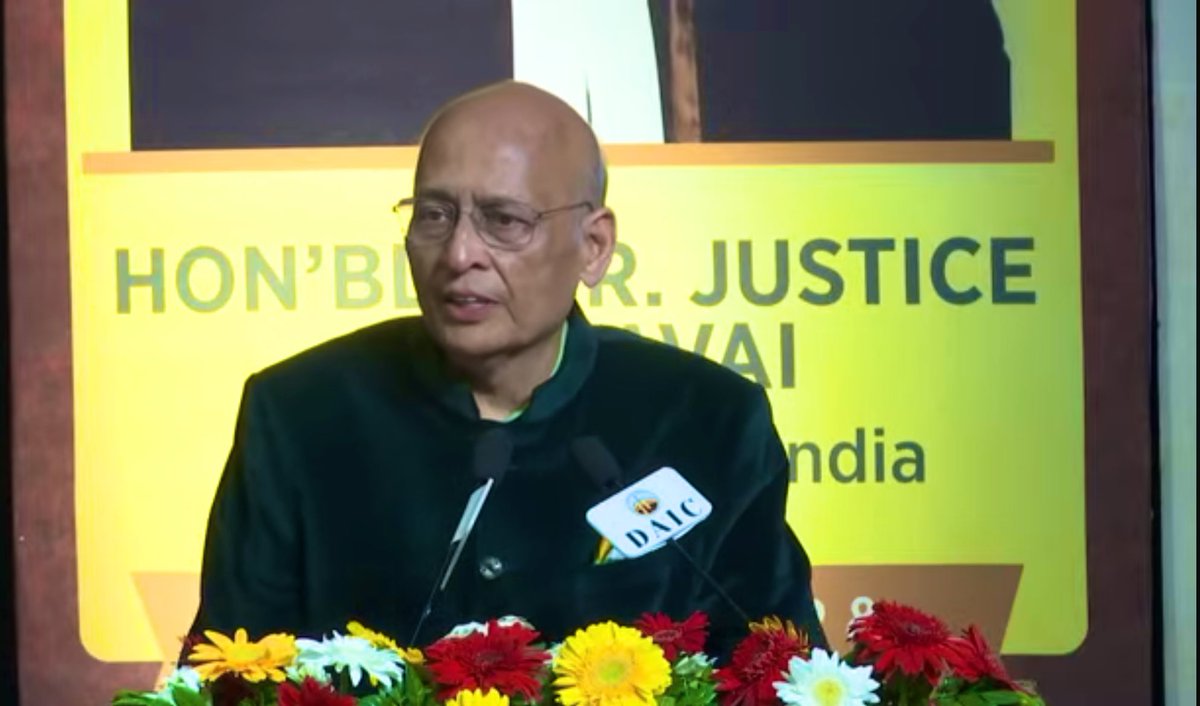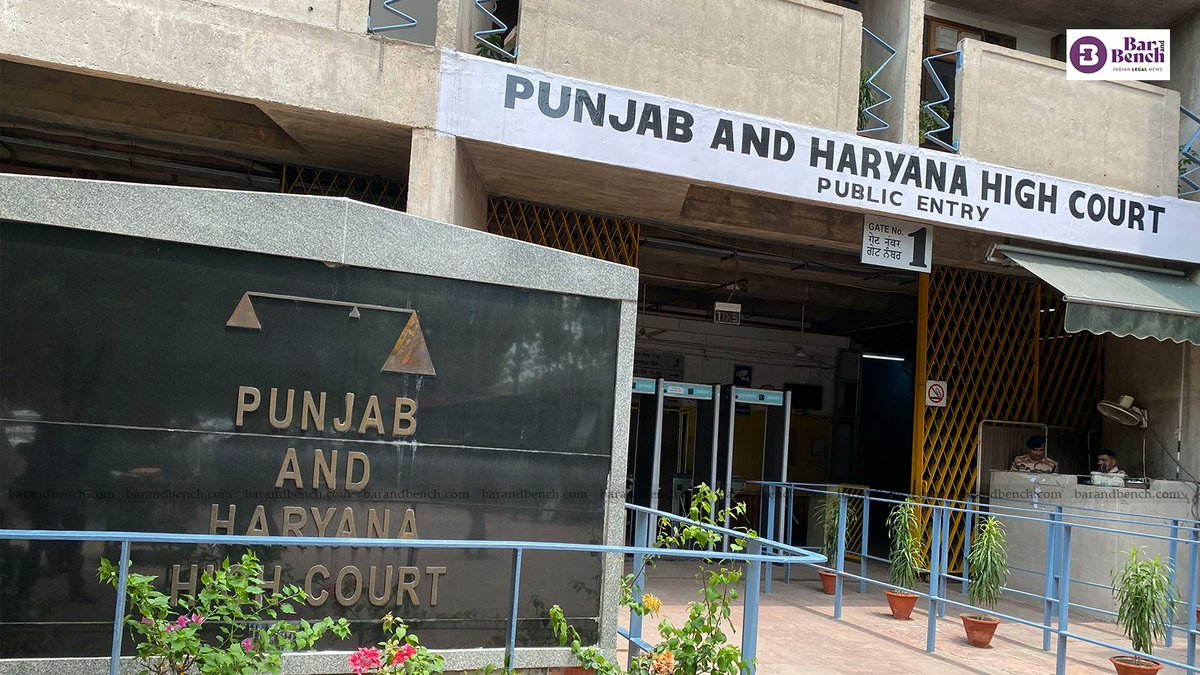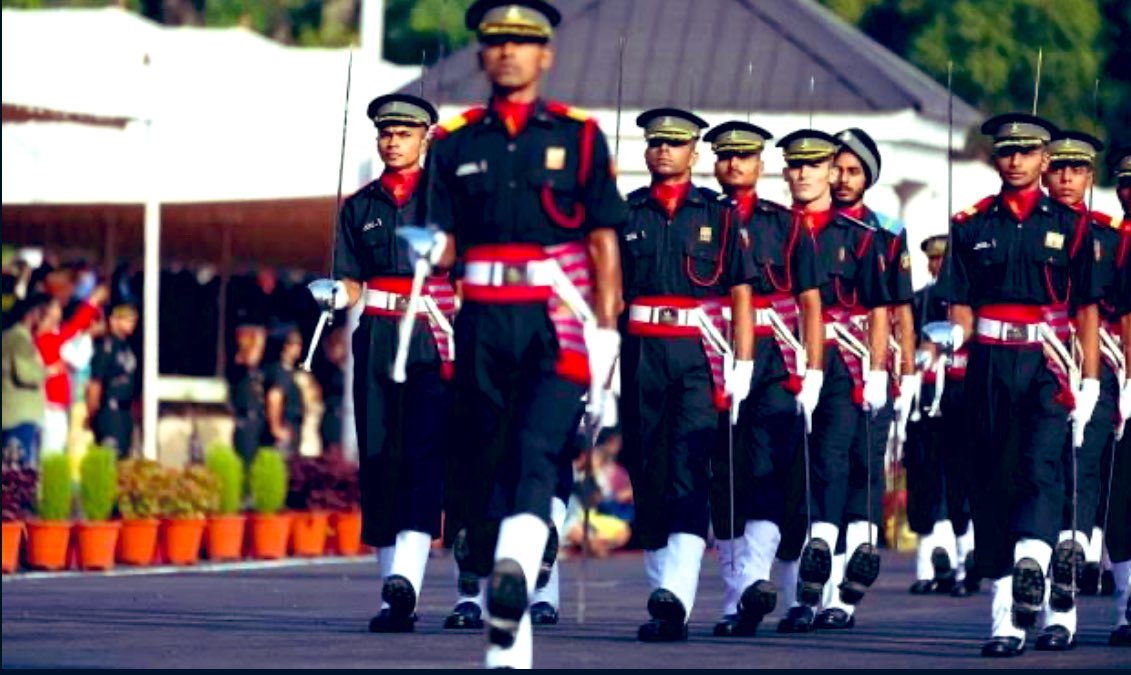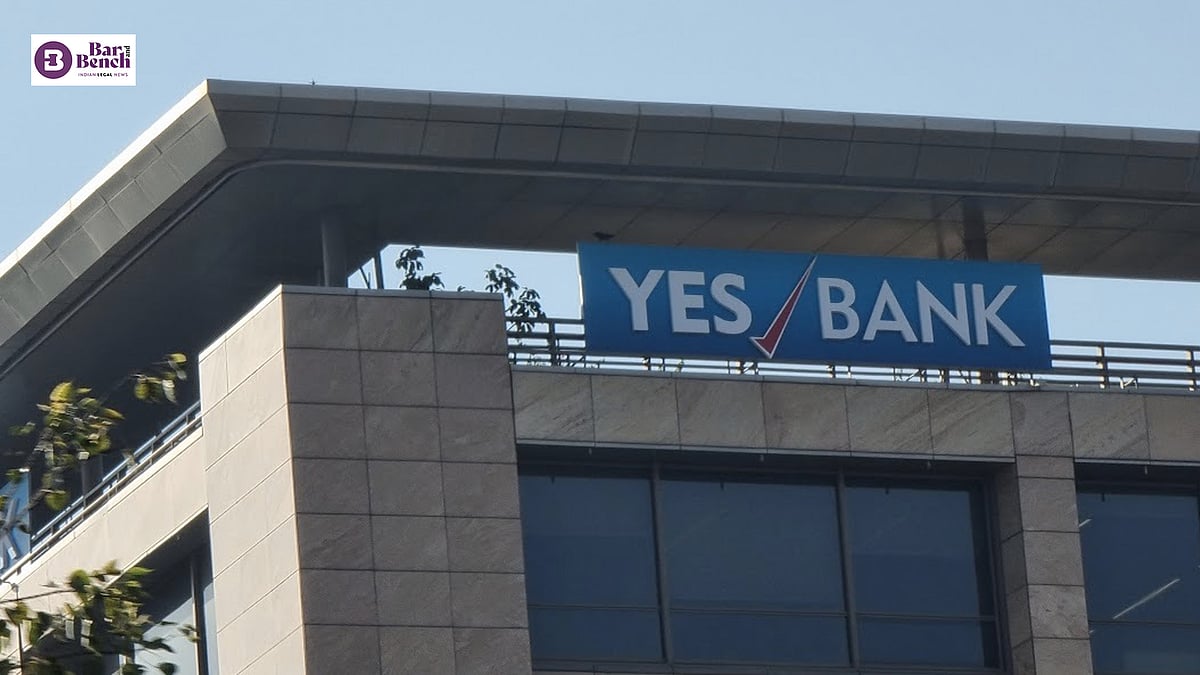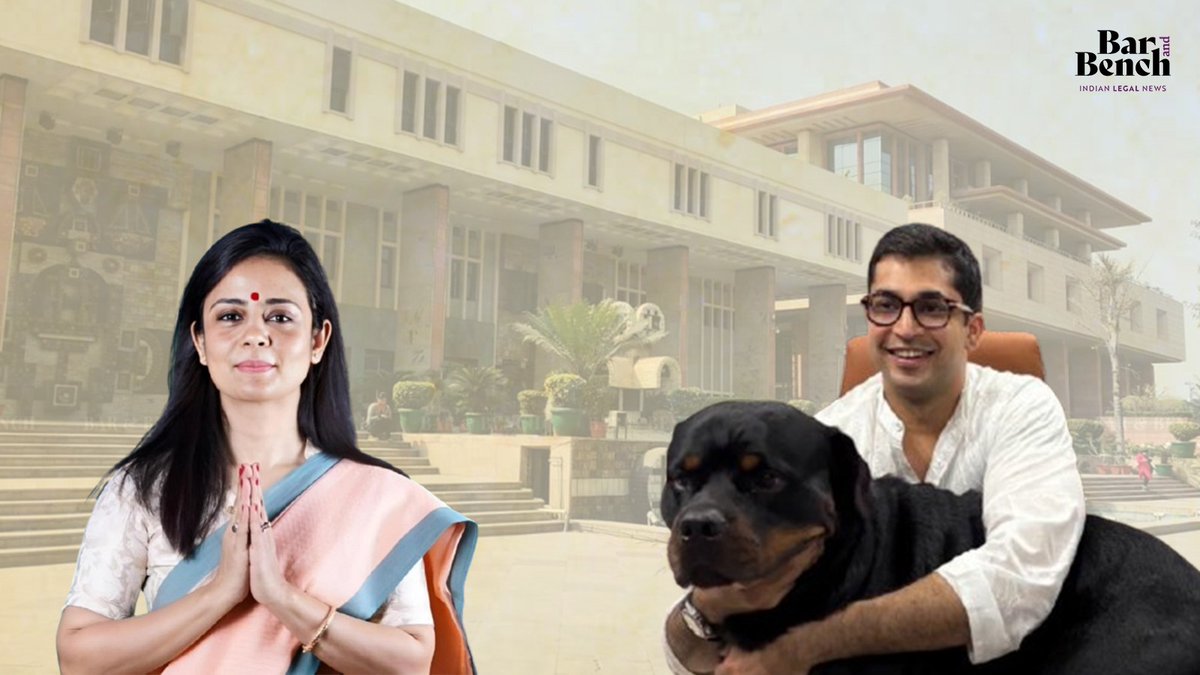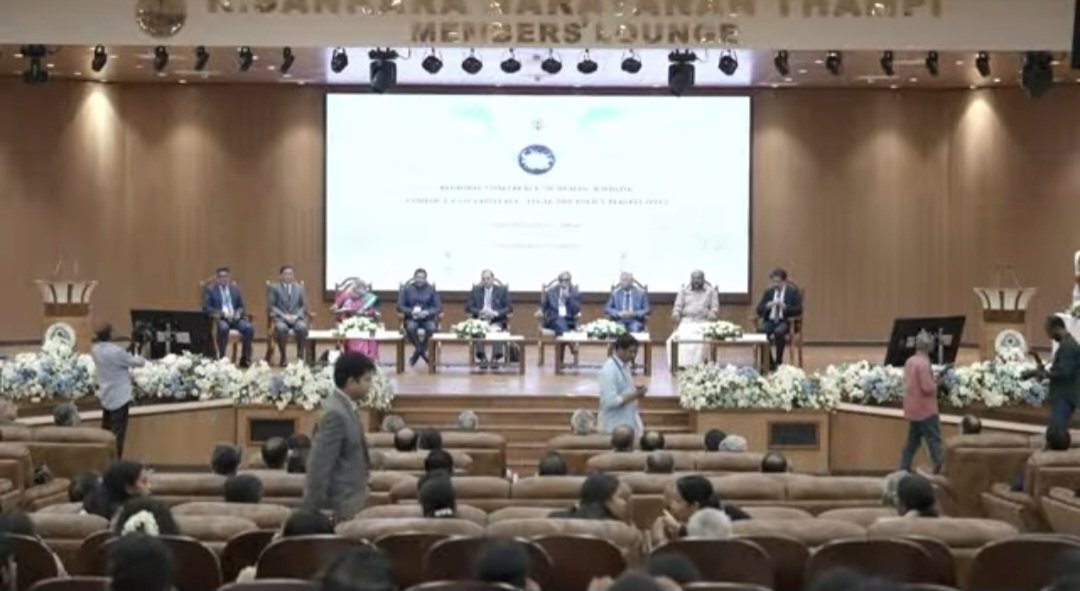Chief Justice of India BR Gavai and Speaker of Lok Sabha Om Birla to shortly speak at the Dr. LM Singhvi memorial lecture organised by Jindal Global University.
The topic of the lecture is- “Human Dignity as the soul of the constitution: Judicial reflections in the 21st century”.
The topic of the lecture is- “Human Dignity as the soul of the constitution: Judicial reflections in the 21st century”.
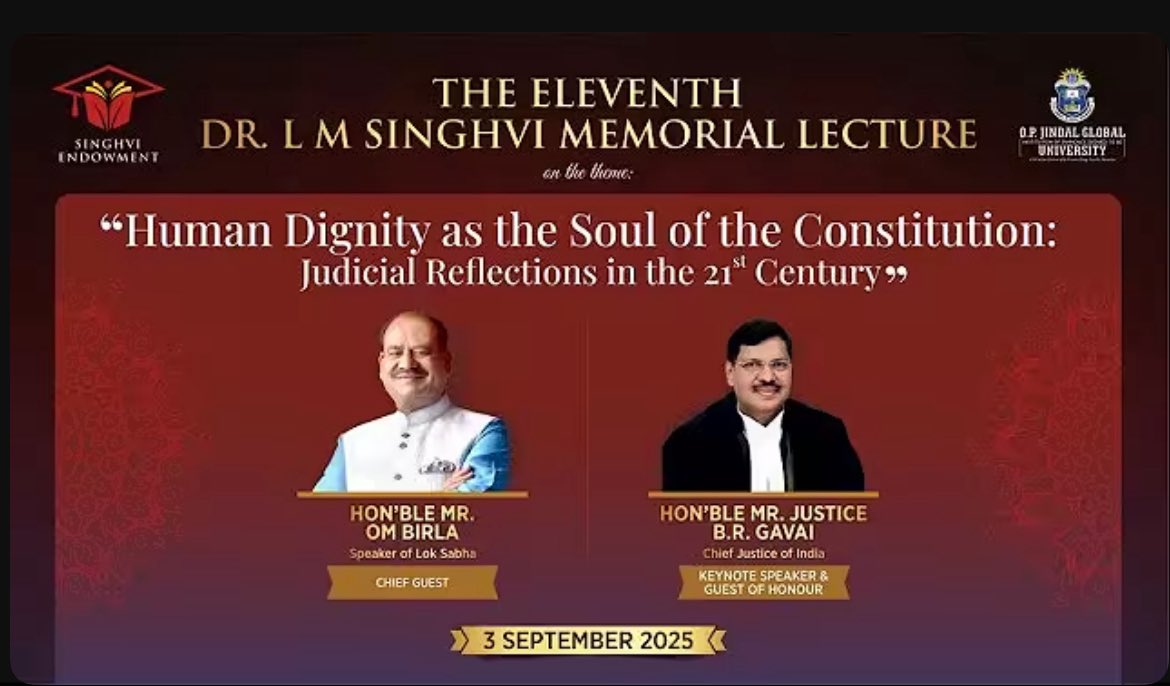
Senior Advocate Abhishek Manu Singhvi and Advocate Avishkar Singhvi will also be addressing the event.
SCBA President Vikas Singh and DHCBA President N Hariharan handing out mementos to CJI Gavai and Om Birla respectively. 



Attorney General of India R Venkataramani, Solicitor General of India of Tushar Mehta present in the event along with many other former/sitting senior Judges of the Supreme Court and Delhi High Court.
AM Singhvi: we should remember the constitution as the grund norm. The sacred text. But even sacred texts require a spirit. The constitution is not a stone monument it is a living organism. The life that elevates it and the pulse that keeps it beating is dignity. Dignity is what transforms the constitution from a legal contract to a moral covenant. Without dignity, liberty becomes license, equality becomes mere arithmetic and fraternity becomes rhetoric. With dignity each of these provisions become real, human, humane.
AM Singhvi: the core of the Kesavananda Bharti judgement was dignity. Puttaswamy was dignity in the digital age. Navtej Johar affirmed that love identity and intimacy cannot be demeaned by majoritarian prejudice. Dignity was not an afterthought in these examples. It was the soul of the process.
AM Singhvi: dignity is not the monopoly of the judiciary….Let me dare say. In an age of angry noise dignity is listening as much as in speaking, in respecting disagreement as much as in asserting belief.
CJI Gavai begins his address.
CJI Gavai: the members of parliament present here in large numbers, many of whom who also double as lawyers in the Surpreme Court. Today we had a dialogue in the afternoon on that. I don’t want to speak much on that…
CJI Gavai: the members of parliament present here in large numbers, many of whom who also double as lawyers in the Surpreme Court. Today we had a dialogue in the afternoon on that. I don’t want to speak much on that…
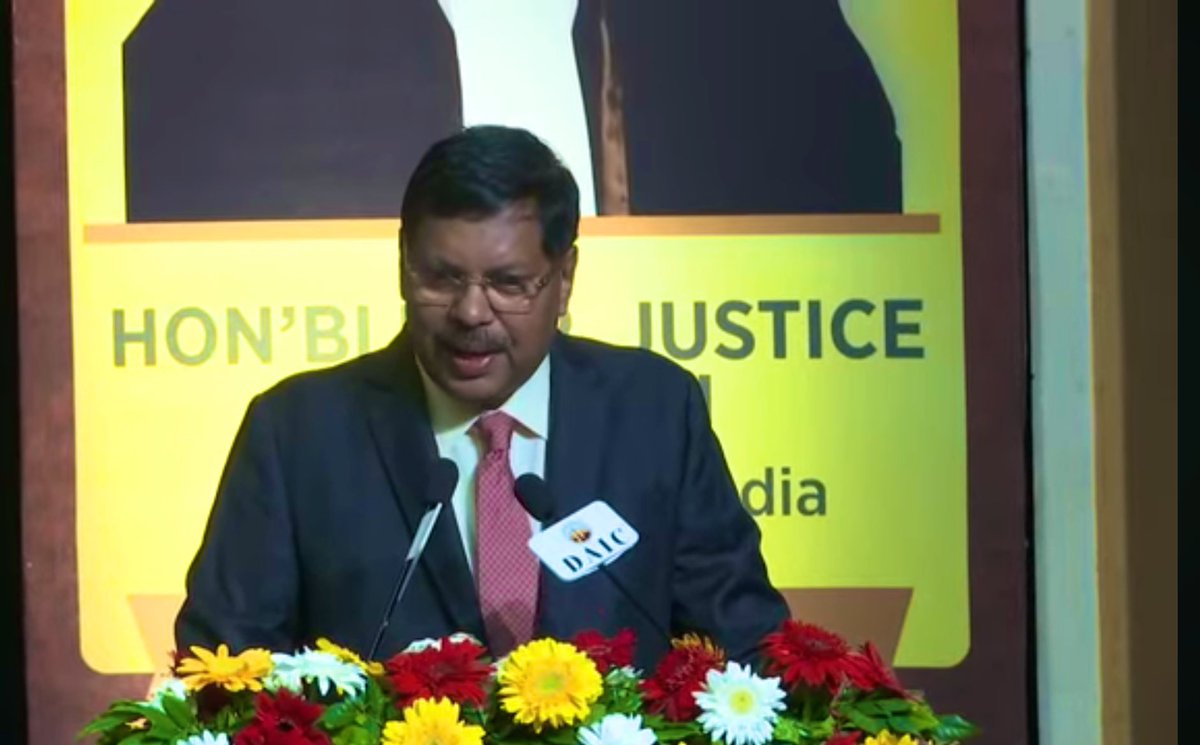
CJI Gavai: where I am today is all because of the Indian constitution and Dr. Ambedkar’s vision that I could hold this August office and get an opportunity to serve the nation.
CJI Gavai: Human dignity was the central concern for the makers of the constitution. The indignities of various kinds led to the design of the constitution as a remedy. The text of the constitution explicitly situates dignity alongside the core values of liberty equality fraternity and justice.
CJI Gavai: when the dignity of every citizen is recognised and protected it prompts us sense of belonging, mutual respect, and solidarity which are essential for maintaining national unity and harmony.
CJI Gavai: By anchoring dignity in these interrelated values, the Constitution envisioned a society where every individual, regardless of caste, class or background, could live a life of respect. Furthermore, the phrase, assuring the dignity of the individual, is a direct commitment that every individual has inherent worth. It is particularly noteworthy that Dr. Ambedkar defined fraternity not merely as a social ideal but as an intrinsic feature of democracy itself. He described fraternity as only another name for democracy.
CJI Gavai: Although the term dignity does not find an explicit textual mention in Part III of the Constitution, which enumerates the fundamental rights, the judiciary has, through consistent interpretation, recognised it as a foundational principle underlying these rights.
Reflections of human dignity are evident across multiple dimensions of the fundamental rights.
Reflections of human dignity are evident across multiple dimensions of the fundamental rights.
CJI Gavai: The prohibition of arbitrariness under Article 14 ensures that state actions respect reason, fairness, and equality, thereby safeguarding the individual’s sense of self-worth.
Similarly, the rights against discrimination under Articles 14 and 15, and the guarantee of equality of opportunity under Article 16, seek to affirm the inherent dignity of every person by preventing unequal treatment based on caste, religion, gender, or other personal attributes.
Similarly, the rights against discrimination under Articles 14 and 15, and the guarantee of equality of opportunity under Article 16, seek to affirm the inherent dignity of every person by preventing unequal treatment based on caste, religion, gender, or other personal attributes.
CJI Gavai: Dignity also underlines the freedoms enshrined in Article 19, which protect individuals’ autonomy in expressing themselves, associating, and moving freely.
CJI Gavai: most significantly, the right to life and personal liberty as enshrined under Article 21 has been interpreted expansively by the Supreme Court to encompass the right to live with dignity, including personal autonomy, bodily integrity, and freedom from degrading treatment.
CJI Gavai: Collectively, these constitutional provisions demonstrate that the protection and promotion of human dignity is a unifying principle underlying the entire framework of fundamental rights. I now refer to a series of judgments on various aspects of human dignity. The judicial recognition of the principle of human dignity in India began to crystallise in the late 1970s, largely in response to the widespread reports of inhuman and cruel treatment towards prisoners in jails across the country.
CJI Gavai: The courts observed that deprivation of liberty could not justify the infliction of humiliation, torture, or degrading treatment, and emphasised that even those in custody retained their fundamental human worth and rights. This period marked a significant shift in constitutional jurisprudence, where the judiciary began to interpret the right to life and personal liberty under Article 21 not merely as a procedural safeguard against arbitrary deprivation of freedom, but as a guarantee to live with dignity.
CJI Gavai: In Sunil Batra v. Delhi Administration, a Constitution Bench of the Supreme Court took serious cognisance of the inhuman treatment of under-trials, convicts, and individuals on death row. Justice Krishna Iyer emphasised that the human thrust of jail jurisprudence demands that no prison authority is exempt from constitutional obligations and that the forcible denial of fundamental rights constitutes an institutional outrage.
CJI Gavai: The Court condemned the use of iron fetters and held that practices such as solitary confinement and cellular segregation are both inhuman and irrational. In Sunil Batra v. Delhi Administration 2, the Supreme Court underscored that imprisonment does not strip an individual of their humanity.
CJI Gavai: It famously observed that in the eyes of law, prisoners are persons and not animals, and affirmed that the judiciary has a duty to hold accountable and punish the divine guardians of the prison system where they go berserk and defile the dignity of the human inmate.
CJI Gavai: Another judgment from 1980, Prem Shankar Shukla v. Delhi Administration, centred around the constitutionality of handcuffing under-trial prisoners. The Court held that depriving a person of human dignity is not merely an act of causing physical discomfort, but an affront to their very humanity, striking at the core of Articles 14, 19, and 21.
CJI Gavai: The Supreme Court in the judgment of 2019 titled X vs. state of Maharashtra, while holding that post conviction, severe mental illness will be a mitigating factor in commuting his death sentence emphasized that the right to dignity of an accused does not dry out with the judges ink; rather, it subsists well beyond the prison gates and operates until his last breath.
CJI Gavai: Another crucial judgment here is Mohini Jain versus The State of Karnataka, where the Court declared the right to education as a fundamental right under Article 21. The court made it clear that education is not just a policy goal but a constitutional necessity for a life of dignity.
CJI Gavai: Another important aspect of the discourse on Human Dignity is that it is intrinsically connected to an individual's autonomy and especially to make decisions about their own life. It encompasses the freedom to exercise choice, personal agency, and self-determination. The Courts have consistently recognized that human dignity and personal autonomy are mutually reinforcing. A person cannot truly live with dignity if they are denied the ability to make choices regarding their body, actions, or life circumstances.
CJI Gavai: A strong emphasis on dignity is made in KS Puttaswamy. It was held that dignity cannot exist without privacy. Both reside in the inalienable values of life, liberty that the constitution guarantees. Privacy was held to be the constitutional core of human dignity.
CJI Gavai: the right to live with dignity also includes the right to die with dignity. Other dimensions of human dignity such as self expression and right to make decisions reinforce the principle that it is ultimately the patient’s choice to accept or refuse treatment.
• • •
Missing some Tweet in this thread? You can try to
force a refresh

